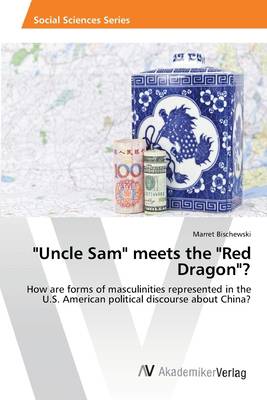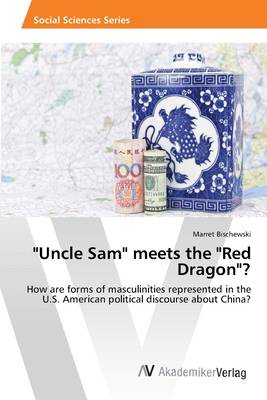
Bedankt voor het vertrouwen het afgelopen jaar! Om jou te bedanken bieden we GRATIS verzending (in België) aan op alles gedurende de hele maand januari.
- Afhalen na 1 uur in een winkel met voorraad
- In januari gratis thuislevering in België
- Ruim aanbod met 7 miljoen producten
Bedankt voor het vertrouwen het afgelopen jaar! Om jou te bedanken bieden we GRATIS verzending (in België) aan op alles gedurende de hele maand januari.
- Afhalen na 1 uur in een winkel met voorraad
- In januari gratis thuislevering in België
- Ruim aanbod met 7 miljoen producten
Zoeken
"Uncle Sam" meets the "Red Dragon"?
How are forms of masculinities represented in the U.S. American political discourse about China?
Marret Bischewski
Paperback | Engels
€ 35,95
+ 71 punten
Omschrijving
Most approaches in International Relations (IR) agree on the basic assumption that states are the central actors in the international system. In addition, to speak about a state while using metaphors of personhood - implying that the state is like a living organism, a "human being" who acts and takes decisions - is everyday policy. But if the state is for analytical purposes treated as a person, the question of "gender" is becoming relevant. Given that feminist studies previously revealed how treating gender as irrelevant can actually privilege "masculine values" as the universal norm. In her critical feminist discourse analysis Marret Bischewski examines how gendered identities of states are constructed in global politics and how forms of masculinities are negotiated in the international arena. By analyzing the U.S. American political discourse about China she makes the operations of masculinities in the meetings of "Uncle Sam" and the "Red Dragon" visible. Further, she overcomes the obstacles of feminist inquiry regarding the question "how to identify masculinity when you see it?".
Specificaties
Betrokkenen
- Auteur(s):
- Uitgeverij:
Inhoud
- Aantal bladzijden:
- 104
- Taal:
- Engels
Eigenschappen
- Productcode (EAN):
- 9783639465808
- Verschijningsdatum:
- 11/08/2013
- Uitvoering:
- Paperback
- Afmetingen:
- 150 mm x 220 mm
- Gewicht:
- 155 g

Alleen bij Standaard Boekhandel
+ 71 punten op je klantenkaart van Standaard Boekhandel
Beoordelingen
We publiceren alleen reviews die voldoen aan de voorwaarden voor reviews. Bekijk onze voorwaarden voor reviews.









